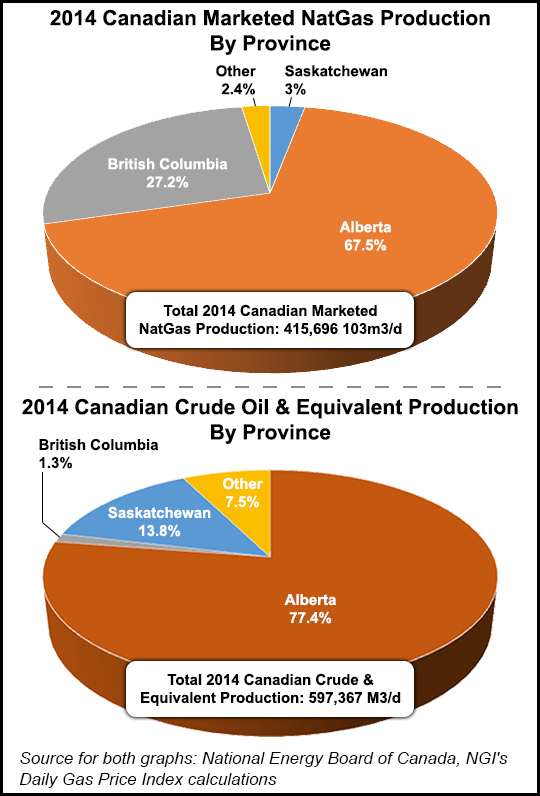Alberta Government Veers to Left, Possibly Impacting Energy Industry
The Alberta government, which oversees Canada’s chief energy-producer jurisdiction, has veered to the political left after the New Democrats (ND) on Tuesday won a majority in the provincial legislature, ending 44 unbroken years of Conservative regimes.

Edmonton lawyer Rachel Notley led the NDs to victories in 53 of the province’s 87 constituencies. The Tories lost 50 seats to fall into third place with 11, behind 21 won by the Wildrose and ahead only of the Liberals and the Alberta Party with one apiece. Defeated Conservative Premier Jim Prentice immediately resigned the party leadership and his Calgary seat in the legislature.
On the U.S. political scale, the NDs most closely resemble Franklin Roosevelt-era New Dealers. The Conservatives (Tories) would fit in with moderate Republicans. The Wildrose, named after Alberta’s official flower, are devout fiscal and social conservatives akin to the American Tea party – except that even the far-right faction are stalwart defenders of Canadian differences such as national state-run Medicare for all.
To date, the Alberta NDs most radical economic proposals are a minimum wage raise, a two-point corporate income tax increase on all industries and a review of royalties charged for producing publicly owned oil and gas resources, which is 81% of them by area and nearly 100% by energy content because the government holds all the oilsands.
Otherwise, Notley pledged in her victory speech to sustain the province’s renowned entrepreneurial streak and make her regime a partner rather than a conqueror of the fossil fuel sector. She set the NDs’ sights on “building bridges and open markets with the energy sector instead of having a black eye.”
The bruise allusion referred to countering “dirty oil” imagery that eco-puritans across Canada, the United States and Europe have spread while fighting oilsands development as a symbol of polluting fossil fuels and undemocratic corporate energy power.
ND supporters include thousands of technical and professional personnel employed by the petroleum industry in Alberta’s principal cities, the political capital Edmonton and the business headquarters Calgary.
Notley vowed to make the government a constructive economic force by crafting policies that eventually establish a sounder, “diversified” footing than current heavy reliance on “roller-coaster” energy prices and exports of unprocessed bitumen, crude oil and natural gas.
Notley kept the NDs’ options wide open for dealing with thorny energy environmental issues such as greenhouse gas emissions, in cooperation with other provinces, as well as the Conservative federal government in Ottawa.
Among the crop of pipeline additions proposed to support continued growth of Alberta production, Notley has distanced herself from the hotly contested Keystone XL and Northern Gateway projects. But she has registered support for the Energy East and Trans Mountain plans for deliveries to tanker ports on the Atlantic and Pacific coasts.
© 2024 Natural Gas Intelligence. All rights reserved.
ISSN © 1532-1231 | ISSN © 2577-9877 | ISSN © 1532-1266 |
